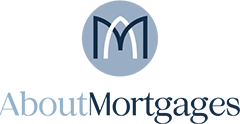Can you get a mortgage on benefits?
14 November 2022

Mortgage lenders are primarily interested in your ability to repay your mortgage and the stability of your income. Whilst every lender will have their own unique criteria, there are lenders who will consider certain long-term benefits as income when they are conducting their affordability assessment. As with every source of income, lenders prioritise stable, long- term income streams, so short-term benefits might not be included in mortgage assessment calculations. If you can prove that you meet their lending criteria and affordability calculations, you could get a mortgage on benefits.
Where your mortgage application might become slightly more difficult is that not every lender will accept benefits or universal credit as a source of income, which will have a significant impact on the calculated affordability. Some lenders might accept benefits or universal credit, but might place a cap onto which these benefits can be used to calculate your affordability. It should be noted, no lenders will accept the housing benefit aspect of universal credit towards your mortgage affordability calculations. This is because the housing part of your universal credit will stop once you get a mortgage.
Lenders like to see consistent and stable income. If you are in receipt of a long term benefit such as a disability living allowance for a permanent disability, this will be seen as a long- term and stable income. On the other hand, if you are receiving a short-term benefit payment, such as universal credit whilst searching for your next job, then this might be treated differently by the lender.
Types of benefits that some lenders will accept towards your affordability
This list is not exhaustive, and every lender has a different criteria as to what benefits will be
accepted towards your affordability calculations. However, this list should provide a useful
indication.
- Attendance Allowance
- Carers Allowance
- Child Benefit
- Disability Living Allowance
- Incapacity Benefit
- Industrial Industries Benefit
- Maternity Allowance
- Pension Credit
- Severe Disablement Allowance
- Universal Credit, which replaced many previous individual benefits such as Child Tax
- Credit and Jobseeker’s Allowance
- Widow’s Pension
Can you get a mortgage on Universal Credit?
Many different types of benefit were simplified into one payment, Universal Credit, back in 2013. Benefits such as Child Tax Credit and Jobseeker’s Allowance were phased out and replaced by Universal Credit. However, lenders still deal with these benefits the same way as previously. This is to say, a lender can not legally reject your mortgage application on the basis that you receive Universal Credit. If you pass their affordability and eligibility criteria, they might make you a mortgage offer. However, as noted above, every lender will have their own affordability criteria when it comes to universal credit. For lenders, there are certain benefits to a borrower being in receipt of certain types of long-term benefits such as a permanent disability living allowance, as this will boost your affordability with a stable source of income.
Your employment status might make a difference to your mortgage application whilst on benefits. If you are employed and receive benefits, this might make your mortgage approval more straightforward. If the benefits are stable, long-term and accepted as income by the lender, then the benefit will improve your affordability and borrowing power compared to your salary alone. If you are unemployed claiming universal credit, you can still apply for a mortgage, however your options will be limited. Many lenders will not lend to an unemployed person, even if you would be able to afford the repayments. This being said, there are specialist lenders who might be able to help.
Home Ownership for People with Long-term Disabilities (HOLD)
The HOLD scheme is a government-backed initiative for people with long-term disabilities to buy a home on the open property market, on the same terms as the shared ownership scheme. The HOLD scheme allows people with long-term disabilities to buy an initial share of their home of between 10% and 75%. Through a process known as ‘staircasing’ you will be able to buy more shares in your home overtime, paying less rent in the process. The amount of rent that you will pay is dependent on the share of the house that the landlord / housing agency owns.
The key difference between the HOLD scheme and Shared Ownership is that properties purchased through the HOLD scheme are from the open market and can be over ten years old, whereas shared ownership properties need to be either new builds or already within the shared ownership network.
To be eligible for the HOLD scheme, you will need to meet the following criteria:
- You have a long-term disability
- Your gross annual household income is less than £80,000, or £90,000 if you live within London
- You are either a first time buyer, you used to own a home but can’t afford to now, or you are an existing shared owner looking to move
Hopefully you have found this guide useful and informative. Being on benefits does not necessarily mean that you cannot apply for a mortgage. Quite the contrary, lenders are legally obliged to not discriminate against those on benefits. However, you might find your application to be more difficult. Therefore, you might appreciate the expert guidance that our team of friendly mortgage specialists can provide. Book an appointment today to start your mortgage journey today.
